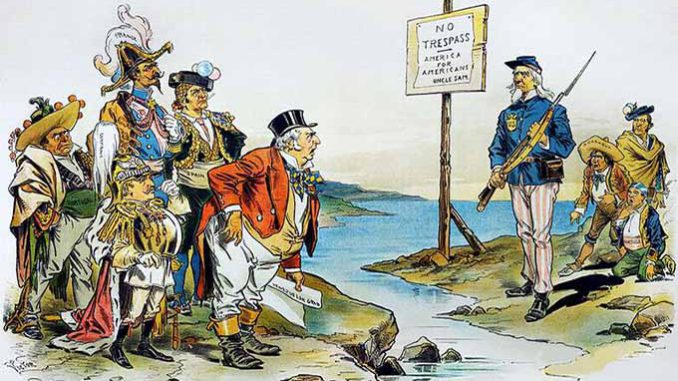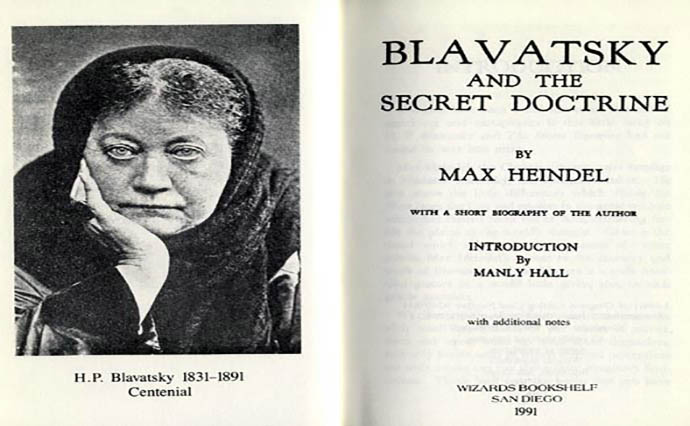
From President James Monroe’s seventh annual message to Congress on December 2, 1823.
… On the proposal of the Russian Imperial Government, transferred through the Emperor’s messenger with permanent residence in Washington, D.C., the United States envoy to St. Petersburg has been given full authority and instructions to enter into friendly negotiations on the mutual rights and interests of the two Powers on the north-western coast of our continent … With this friendly step, the United States Government wishes to demonstrate the great importance that it has always attached to the friendship of the Emperor and the desire to develop the best of the world. In the course of the negotiations prompted by this desire and in the agreements that may be reached, it has been considered appropriate to take the opportunity to assert, as a principle relating to the rights and interests of the United States, that the Americas, which have achieved and safeguarded freedom and independence, should no longer be considered the object of future colonization by any European power.
At the very beginning of the last phase of the negotiations, it was stated that serious efforts were being made in Spain and Portugal to improve the living conditions of the people in those countries, and that those efforts were extremely cautious. It is hardly worth mentioning that the result achieved so far is very different from what was expected. We have always observed with concern and interest developments in that part of the world, with which we not only have a close relationship, but with which our origins are linked. United States citizens have the most friendly feelings for their fellow Atlantic citizens, for their freedom and happiness. We have never participated in the wars of European Powers that concern them, and that is consistent with our policies. We are outraged by the resentment we have suffered or are preparing to defend ourselves only when our rights have been violated or threatened.
When necessary, we are much more involved in the events taking place in our hemisphere, and we speak for reasons that should be obvious to all well-informed and unbiased observers. The political system of the Allied Powers differs significantly from that of America … Therefore, in the interest of preserving the sincere and friendly relations that exist between the United States and those Powers, we must declare that we will have to consider the attempt of those parties to extend our system to any part of that hemisphere as a danger to our peace and security. We have not interfered, and will not interfere, with the existing colonies or dependent territories of any European Power. But as for the governments of the countries which have declared and are maintaining their independence, and those whose independence, after careful study and on the basis of the principles of justice, we have recognized that we cannot consider any intervention by a European power to oppress or control these countries other than as an unfriendly manifestation towards the United States…
The Monroe Doctrine is a declaration of the principles of U.S. foreign policy, proclaimed in a message of U.S. President J. Monroe to Congress on December 2, 1823. Designed in connection with the threat of the Holy Alliance’s intervention in Latin America to restore Spanish domination in its American possessions. Leading role in the development of the e. G. Monroe. M. belonged to Secretary of State J.K. Adams. Monroe’s message put forward the principle of dividing the world into European and American systems and proclaimed the idea of non-interference of the USA in the internal affairs of European countries and, accordingly, of non-interference of the latter in the internal affairs of the American continent. “The American continents,” the message pointed out, “in view of the free and independent position they have achieved and maintained, should no longer be regarded as an object for future colonization by any European power” (hence the principle of “America for Americans”). The United States reaffirmed its neutrality in the fight of the former Spanish colonies against metropolis. At the same time, the final part of D.M. contained an attempt to substantiate the principle that made the growth of the US power dependent on the accession of new territories and formation of new states, which testified to the expansionist aspirations of the US towards the countries of Latin America. Under the flag of d. Under the flag of M. M. the USA in the war of conquest against Mexico (1846-48) rejected more than half of the Mexican territory. With the transition to imperialism expansionist tendencies of Dr. M. were developed in the doctrine of Olney (1895) and the so-called Roosevelt’s addendum (1904), which directly declared the claims of the USA to the right of realization of “international police force” in Latin America. Already in the first decades of the 20th century. In the first decades of the 20th century, the United States undertook interventions in Cuba, Mexico, Haiti, the Dominican Republic, Nicaragua, Panama and other countries. In the context of a general crisis of capitalism, the USA seeks to use the e. g. M. for economic and political expansion and to combat the growing national liberation movement in Latin America.
Monroe James
Monroe James (28.4.1758; Westmoreland, Virginia, – 4.7.1831, New York), American statesman. In 1790-94 Senator, in 1794-96 Envoy to France, in 1799-1802 Governor of Virginia, in 1811-17 Secretary of State, in 1814-15 Minister of War. In 1817-25 the President of the USA. In his activities M. tried to combine the interests of planners of the South and the bourgeoisie of the North. During the presidency of M. the accession of East Florida (1819) was carried out, the Missouri compromise (1820) was concluded, it was decided to recognize the independent states of Latin America (1822), Monroe Doctrine was proclaimed (1823).


Leave a Reply